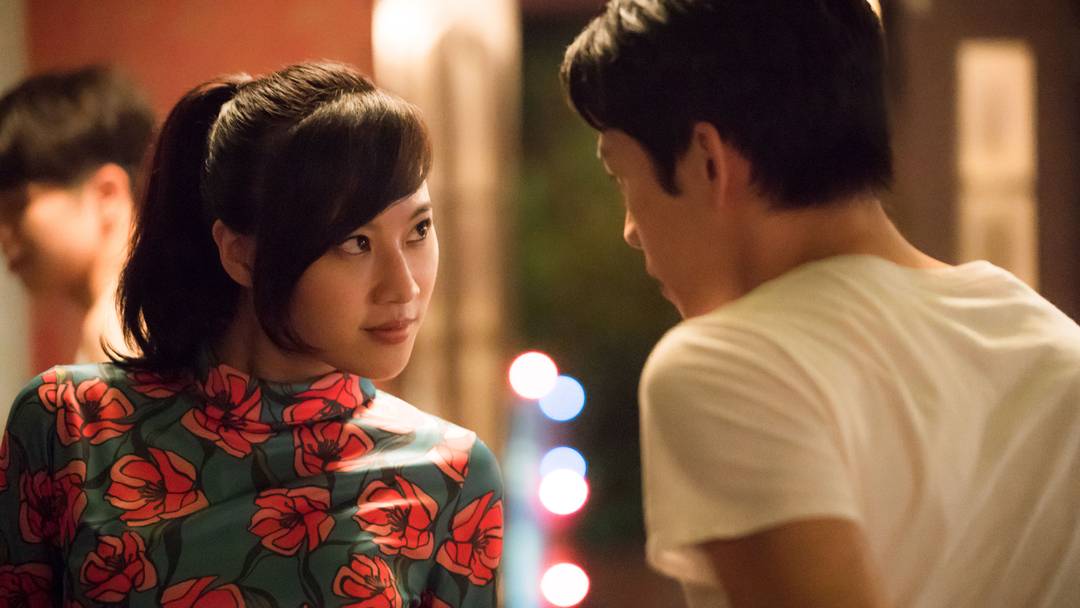Look, I get it. I do. You throw on Netflix. You leave the kid in charge. They ask what you want to watch. They ask twice because you’re doing the dishes. You bellow out “Tiger King,” but all the kid hears is “Tiger…” so instead of a spectacle of documented reality horror, the kid throws on Tigertail, a sad film about a Taiwanese immigrant. Sure, you don’t know why the kid kept watching it. Nobody does. But while it’s on, maybe you give it a chance. Lord knows we’ve all seen enough of “Tiger King.”
Pin-Jui (Zhi_Hao Yang child, Hong Chi-Lee young adult, Tzi Ma old) grew up without a mother, father, or emotions. His father died when he was a baby and his mother had no work, so she sent him to live with grandma in a remote village called Huwei (“Tiger tail” … ladies and gentlemen, we have a title). Early on, the child mistakes some rice farmers for his parents and has to be told, “That ain’t right, Chief” by grandma. When Pin-Jui starts to cry, grandma catches that tiger by the tail insisting that crying never helps. This is the seminal event in the life of Pin-Jui; as a result, the kid learns never to express himself or what he’s feeling. This single moment will effectively mar the lives of everyone in Pin-Jui’s circle, including his mother, wife, girlfriend, and daughter.
I’m getting ahead of myself. First we have to parallel the story arc of young adult Pin-Jui getting out of Taiwan and retired Pin-Jui -forty years or so in the future- miserable in the suburbs. No, I suppose he doesn’t act miserable, but he is miserable and, man, could this guy use a hobby besides, “staring out the window and reflecting on my shitty life…” Teenage jukebox hero Pin-Jui is in love with Yuan (Yo-Hsing Fang as a starlet, Joan Chen as an older woman), a girl who loves him back, btw. In Pin-Jui’s first chronicled act of self-abuse, he fails to express himself fully to Yuan, taking for granted that she’s too good for him. He also fails to tell her that his boss has offered a combo-package “my daughter and America” if Pin-Jui just plays ball. These are things you might wish to disclose to people you love.
The theme of Pin-Jui failing to tell people what he’s thinking and feeling is consistent throughout Tigertail. The film doesn’t blame him, nor does it really condemn him. Tigertail understands “ye reap what ye sow,” but it also seems to be rooting for Pin-Jui to compensate, as if to say, “It’s not too late with your own daughter, dude.” Parenting is knowing that it’s not like the movies; you always have a second chance to make up for crappy parenting so long as you care.
Tigertail is an honest, sincere film. It catalogs a man with inner demons, shows us how he got there, and asks little more than we pay attention. It sympathizes with the man, while –like the man himself- not quite getting to a true emotional state. The man is the film’s “hero” -for lack of a better word- yet rarely presented far beyond the matter-of-fact. I felt much more for his daughter Angela (Christine Ko) than for the man. Why? Because Angela seems truly invested in her own well-being while Pin-Jui continues to stare out the window. I didn’t love this film and didn’t want to love it. While sincere, Tigertail strikes me much more as a cautionary tale than a solid drama. Pin-Jui has a lousy life; he’s soiled every relationship he’s had because of his self-discipline. I’m sorry for him, but I didn’t like him, and asking me to follow a stoic character I didn’t like for 90 minutes is a tigertall request.
A tiger tale that might stick in your gullet
This man repressed by tradition, not bullet
Through all Netflix syncing
I know what you’re thinking
“Where’s the gay guy with the crazy mullet?”
Rated PG, 91 Minutes
Director: Alan Yang
Writer: Alan Yang
Genre: Melancholy
Type of being most likely to enjoy this film: Asian men who learned never to express emotion
Type of being least likely to enjoy this film: Asian men who learned never to express emotion




